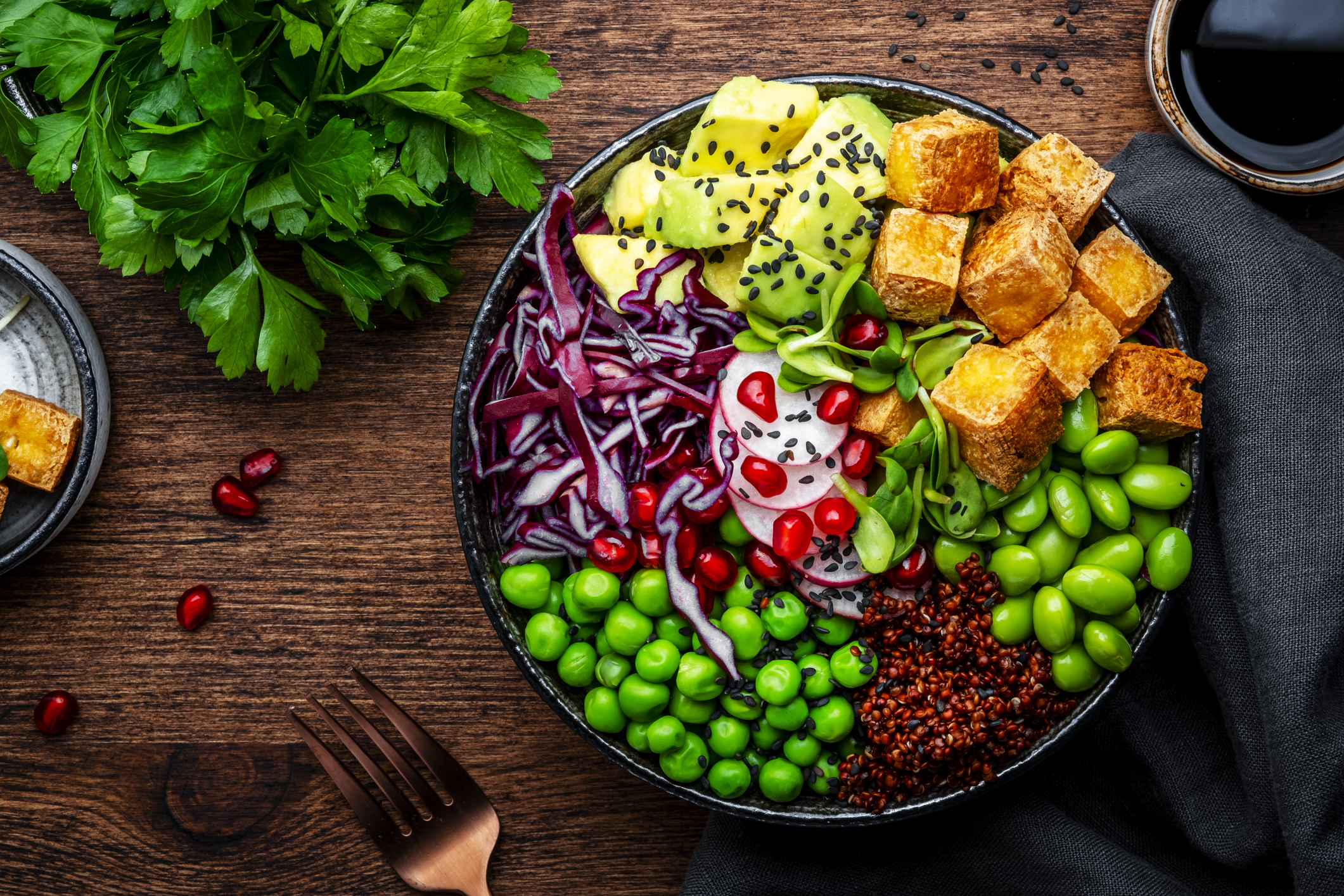Don't Eat Less, Eat Right

The numbers on the scale have held far too much power over our sense of self-worth for too long. As a society, we’re obsessed with pursuing thinness at any cost, restricting foods, and over-exercising in hopes of attaining society’s unrealistic beauty ideals. This toxic diet culture has led down the path of chronic dieting, disordered eating habits, poor body image, and decreased quality of life.
Isn’t it time we shift the focus away from the scale and outward appearance to what truly matters – overall wellbeing, self-acceptance, inner peace, and joy? The principles of intuitive eating and body positivity aim to do just that by encouraging:
Rejecting the Diet Mentality
Chronic dieting is physically and mentally exhausting. Plus, it often leads to weight cycling, binge eating tendencies, and decreased self-esteem. In contrast, intuitive eating teaches us to let go of external food rules and the diet mentality. We need to learn to trust our inner wisdom when it comes to eating.
When you get too strict with calories and food rules, it’s mentally draining. It’s like trying to hold your breath – you might be able to do it for a little while, but eventually your body rebels. When it rebels, you have intense food cravings, feelings of deprivation, and even binge eating. Plus, you feel like a failure when those cravings hit, or you break your diet rules. On top of that, research shows that strict dieting causes our metabolism to slow down over time, so you regain weight, leading to that yo-yo effect.
Honoring Your Hunger
Rather than ignoring hunger signals, intuitive eating encourages us to pay attention and respond appropriately to hunger cues. Nourishing your body when hungry can prevent overeating later. We must give ourselves unconditional permission to eat rather than waiting for “cheat days.”
No matter how much willpower you thought you had, if you put off eating for too long, you’d end up ravenous and making not-so-great choices out of desperation. Intuitive eating teaches you to tune into your body’s signals. Now when you first start to feel those early signs that you need nourishment – a little stomach growl or lightheadedness – you’ve learned not to override them. You’ll take that as your cue to go ahead and eat something satisfying.
Even if it’s not a typical mealtime, giving your body what it needs in the moment prevents things from escalating into desperately shoveling food in your mouth later because you’re so famished! When you know another meal or snack is coming soon, it’s easier to eat slowly, savor each bite, and stop when you feel content rather than stuffed.
Making Peace with All Foods
No food is inherently “good” or “bad.” When you categorize foods as such, it can lead to intense cravings, feelings of deprivation, binge eating, and guilt. Intuitive eating promotes body wisdom to determine which foods make your body feel best. The key is moderation of all foods.
Now if you decide you want ice cream, even if you just had some last night, you could enjoy a small serving, savor it slowly, and determine if your body feels good afterwards or if you overdid it. You use that as guidance going forward rather than inflexible rules about when you “should” be able to eat certain treats. It’s freeing to ditch the diet mentality!
Moderation ends up happening naturally when you tune into your body’s wisdom and fullness signals. No more deprivation leading to binges. Just listening and honoring what your body really needs. That’s intuitive.
Exercising Feel-Good Movement
Movement should not be a means of manipulating weight. Rather, exercise should promote overall health and be enjoyable. When we engage in physical activities that connect us to our bodies and that we genuinely delight in, we are more likely to stick with them long-term.
Intuitive exercise encourages you to reconnect with movement that makes both your mind and body feel good. The goal becomes supporting your health and wellbeing rather than judging yourself on calories burned or pounds lost.
Embracing Body Diversity
All bodies deserve respect, not just thin ones. The body positivity movement is trying to get us to celebrate all bodies. It’s a process of moving toward self-love and self-care after years of being given messages that kept us feeling “less-than” satisfied.” As we learn to trust and care for our whole, wonderful selves, our relationship with food, exercise, and body image will slowly transform too. Be patient and speak kindly to yourself if you slip up; change takes time.
References:
• “Exploring the Body Positivity Movement | Psychology Today.” 27 Nov. 2022, https://www.psychologytoday.com/us/blog/fit-femininity/202211/exploring-the-body-positivity-movement.
• “Learning to eat intuitively: A qualitative exploration of the ….” 01 Feb. 2019, https://www.ncbi.nlm.nih.gov/pmc/articles/PMC6360478/.
• “Intuitive Eating | The Nutrition Source | Harvard T.H. Chan School of ….” https://www.hsph.harvard.edu/nutritionsource/intuitive-eating/. N. A. O. S. M. (n.d.).
• Beyond the Scale: Embracing Body Positivity and Intuitive Eating for Long-Term Wellness. Cathe.com. Retrieved July 18, 2024, from https://cathe.com/beyond-the-scale-embracing-body-positivity-and-intuitive-eating-for-long-term-wellness/
